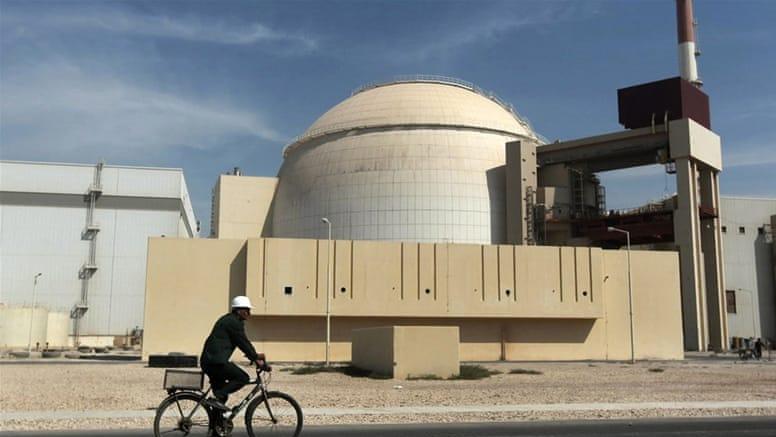World reacts to Trump's pending decision on Iran deal
Benjamin Hall provides insight into the international reaction of the Iran nuclear agreement.
President Trump’s expected announcement Tuesday that he will withdraw from the Iran nuclear deal could set up a nasty confrontation pitting the U.S. against China and Russia, because those two nations are strengthening ties with Iran.
Russia and China have signed massive commercial deals with Iran worth hundreds of billions of dollars, and will not be deterred in building closer ties with the Islamic Republic by any action President Trump takes.
In fact, a U.S. exit from the deal – signed in 2015 to prevent Iran from developing nuclear weapons – would likely bring Iran closer to Russia and China to counter any economic harmed caused by the reimposition of U.S. economic sanctions against Iran.
As a result, Russian and Chinese trade with Iran could considerably lessen any economic harm a U.S. withdrawal from the nuclear deal would cause Iran. This would sharply reduce the chances President Trump would succeed in pushing Iran to agree to tough new restrictions on its nuclear program and its missile development, and to end its support for Syrian dictator Bashar Assad and terrorist groups.
Just last week, at the Eurasia Airshow in southern Turkey two Iranian state-controlled air travel companies signed agreements to purchase 40 Sukhoi Superjet-100s from Russia for a total of $2 billion.
The Superjet-100 contains components and parts that come from Russian companies that are on the U.S. sanctions list. These companies will make sure that the jets will have less than 10 percent of their components originating from the U.S., in order to avoid U.S. licensing issues.
Meanwhile, China has become the main commercial and trading partner for Iran. Since the 2015 visit to Iran by Chinese President Xi Jinping, the bilateral commercial deals have reached hundreds of billions of dollars.
It’s as if President Trump was building a fence around Iran while Russia and China were tearing gigantic holes in the fence. In addition, European nations show no inclination to cut off trade with Iran even if the U.S. does.
These deals include strategic investments such as the one for the development of South Pars gas field in Iran. This project was initially started by French company Total and risked being shut down due to U.S. sanctions.
However, the South Pars project is set to be rescued by the CNPC – China’s top oil and gas company. The Chinese company has already signed a $1 billion deal that gives it the option to take over Total’s stake if Total pulls out.
Another major deal was between the National Iranian Oil Company and China’s SINOPEC (China Petroleum and Chemical Corporation). Totaling almost $3 billion, the agreement gives SINOPEC the right to expand the Abadan Oil Refinery in southern Khuzestan Province in Iran.
Iran ranks 11th in the world in terms of oil processing capacity. The Abadan project is part of the long-term strategy of Iranian government to overhaul its aging refining industry.
In 2017 the Export-Import Bank of China inked a $1.5 billion deal to finance the electrification of a high-speed rail line between the Iranian cities of Tehran and Mashhad. This is part of a Chinese strategic plan to rebuild the railroad along the New Silk Road. The investment will be guaranteed by the Iranian government-owned Bank of Industry and Mine.
With the U.S. Treasury putting pressure on Western banks to not make any deals with Iran, the Chinese state-owned CITIC bank is extending lines of credit worth $10 billion for Iranian banks. This funding will finance water, energy and transport projects. To bypass U.S. sanctions, the lines of credit will use euros and yuan currencies.
In exchange for Iran’s multibillion-dollar contracts, Russia and China have joined forces in support of the Iran deal. Last week they jointly presented a draft resolution at the preparatory session of the 2020 Review Conference of the Treaty on the Non-Proliferation of Nuclear Weapons.
At the meeting, the U.S. and a number of European countries opposed the adoption of the Russian-Chinese draft statement. In a joint statement at the end of the conference, Russia and China said they “confirm their unwavering support for the comprehensive and effective implementation of the Iran Deal” and urged all nations to refrain from undermining the deal.
All these Chinese and Russian deals – and many others – with Iran most likely mean that nothing President Trump can do will bring Iran’s economy to its knees and force Iran to make more concessions on its nuclear and missile development, or its support for Assad and terrorist groups.
It’s as if President Trump was building a fence around Iran while Russia and China were tearing gigantic holes in the fence. In addition, European nations show no inclination to cut off trade with Iran even if the U.S. does.
So while American withdrawal from the Iran nuclear deal will generate lots of news coverage around the world, don’t expect it to prompt any dramatic change in Iranian behavior. In fact, a U.S. exit from the deal might even prompt Iran to move forward on nuclear development, ignoring restrictions imposed by the Iran deal once the deal is killed by the American withdrawal.










































